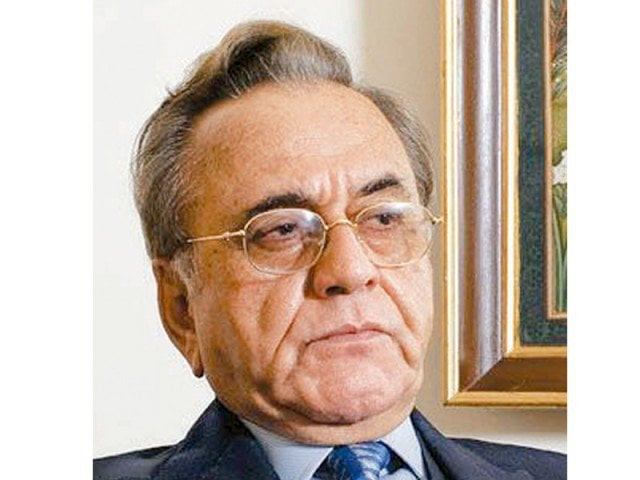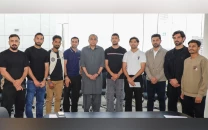Talking points: ‘Bush government refused to hold talks with Iran’
Former foreign minister Khurshid Kasuri speaks to The Express Tribune about his book

Khurshid Mahmud Kasuri. PHOTO: FILE
This was said by former foreign minister Khurshid Mahmud Kasuri in an exclusive chat with The Express Tribune ahead of the launch of his book Neither A Hawk Nor A Dove on Saturday.
“However, the US was not interested in holding talks when I was foreign minister,” he said. Kasuri said Pakistan also did not want Iran to become a nuclear power in violation of its commitments under the Non-Proliferation Treaty.
“Pakistan feared it would be held responsible for helping Iran develop weapons of mass destruction following the Abdul Qadir Khan saga,” Kasuri said. “I was asked by both Iran and the EU representatives to try and bridge their differences on Iranian nuclear issue. I consulted Condoleezza Rice on this issue but her demeanour showed the US wasn’t interested in holding discussions with Iran.”
He added, “The Israeli lobby exercised far greater influence during the Bush administration than in the Obama administration.” Kasuri is of the view that talks with Iran have resumed on broadly similar terms that Iran was prepared to offer to the US through Pakistan during the Bush administration.
On the pages
In his book, Kasuri writes about how he tried to warn the US and European leadership about the dangers of attacking Iran and of the negative consequences for sectarian harmony in Pakistan if Iran was attacked. “We were worried about the consequences for Pakistan’s internal stability if the US actually did attack Iran,” he said. “I tried to persuade US leaders that the use of force against Iran would have negative consequences for the region.”

Kasuri also mentioned details of his official activities following the Israeli attack on Lebanon in 2006 and his meeting with Condoleezza Rice who wanted him to convey a message to the Iranian leadership. He said he delivered a speech in ASEAN Regional Forum (ARF) in Kuala Lumpur urging the United States to pressurise the Israelis to put an end to their attacks on civilians.
“Rice asked me whether I could pass on a message from her to the Iranian Foreign Minister Manouchehr Muttaqi,” he said. “She told me currently the rockets that Hezbollah were firing on Israeli towns were short-range missiles which could not reach Tel Aviv. She feared that in the event that the rockets did reach Tel Aviv, these could only be long-range Iranian rockets and would have ‘Made in Iran’ written all over them.”
Kasuri writes that in case that were to happen, Israel and a section of the NeoCon lobby in the United States might get the pretext they were looking for to attack the Iranian nuclear sites. As soon as his meeting with Rice was over, the author states, he asked his staff to contact the Iranian foreign minister and immediately informed him about what Rice had discussed with him. “He silently heard me out but did not comment,” he said. “The message not only got through to him, it also seemed that it had an impact. There were no attacks on Tel Aviv.”
Foreign ties
On a related subject in the book, Kasuri emphasised the importance of Saudi Arabia and has said that Saudi Arabia has been one of the Pakistan’s closest friends and has come to its help whenever Pakistan needed it.
He also emphasised Pakistan’s connections with UAE, Qatar and other GCC countries and voiced his dissatisfaction over the diplomatic handling of the Yemen crisis by the Pakistan government. He said during his tenure, Pakistan faced a tricky situation involving Saudi Arabia on one side and Iran on the other.
“Pakistan faces a challenging situation in dealing with Saudi Arabia, Iran, and Turkey, who have a complex relationship rooted in history and religion,” he said. “Pakistan has had close relations with these countries based on the very factors that divide them. Pakistan has so far successfully met this challenge and he has advised the government to be proactive and control the damage that resulted from its poor diplomatic performance in the recent Yemen crisis.”
Published in The Express Tribune, September 1st, 2015.




1733130350-0/Untitled-design-(76)1733130350-0-208x130.webp)














COMMENTS
Comments are moderated and generally will be posted if they are on-topic and not abusive.
For more information, please see our Comments FAQ